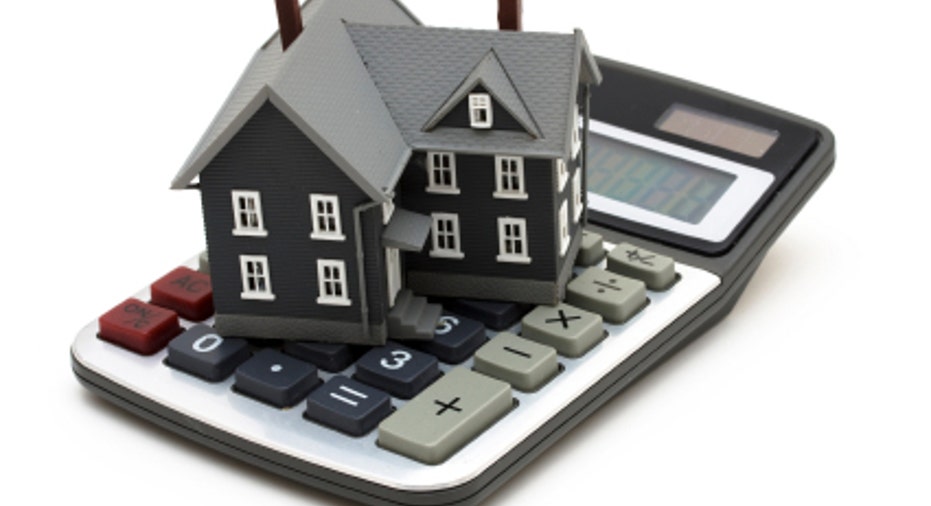When is a HARP Refinance Worth the Cost?

Lured by the opportunity to reduce their mortgage payments, many homeowners embark in the often frustrating experience of trying to refinance through HARP -- the Home Affordable Refinance Program.
The federal program, designed to ease refinancing for homeowners who are underwater or have little equity on their homes, may sound like a good opportunity on the surface. But is it worth the time, the hassle and the money you will need to spend on closing costs?
Borrowers who refinanced through HARP in the first half of 2010 saved on average $125 to $150 a month on their monthly mortgage payments, according to Freddie Mac.
That's not much, considering that some of these borrowers spent thousands on closing costs."Borrowers get attracted to refis like moths to a flame," says Ed Conarchy, an investment adviser and a banker at Cherry Creek Mortgage Co. in Vernon Hills, Ill. "They are attracted to that low rate, but sometimes they don't see that's only half of the story. You have to factor in the closing costs."
Closing Costs vs. Savings
Those with larger loans who got mortgages when rates were in the 6% to 8% range are more likely to benefit from HARP refinances than homeowners in less-expensive areas.
For instance, a borrower who refinances a $125,000 loan that originally had a 6.5% interest rate will save $90.13 a month in mortgage payments with a refinanced loan carrying a 5.375 percent interest rate, according to Jim Sahnger, a mortgage consultant for FBC Mortgage, in Jupiter, Fla. But that borrower would have to spend about $3,230 in closing costs, meaning it would take the borrower almost three years to recoup that money.
On the other hand, a borrower who owes $375,000 under the same scenario would save $270.37 a month. With estimated closing costs of $3,915, the borrower would recoup that expense in a little over a year. On a loan this size, it would make sense to consider it, Sahnger says.
Conarchy says he has helped several borrowers who have refinanced through HARP; but in most of the cases, refinancing only made sense because the borrowers didn't have to pay lender fees -- and in Illinois, title costs are generally less expensive than in other states, he says.
"If your closing costs are $600 and you're saving 100 bucks a month, that's a slam-dunk," he says. "In six months you'll break even."
Ways to Reduce Upfront Costs
The chances you'll pay only $600 for closing costs are low, especially in states where title fees are more expensive. Finding a lender willing to offer a HARP refinance with no fees isn't easy, and most of the time the lender will compensate the waived upfront fee by charging a slightly higher interest rate. They may also add your closing costs to the total balance of your refinanced loan, which is permitted in HARP. But that may affect your eligibility for the program, as it influences the loan-to-value ratio of your mortgage.
HARP allows borrowers to refinance up to 125% of the value of their homes. If you are on the borderline, adding closing costs to the loan amount may put you beyond that threshold.
Despite what the guidelines of the program allow, most lenders are unwilling to offer refinancing for borrowers who owe more than 105% of what their home is worth, Conarchy says.
Credit Score and Equity May Affect Refi Costs
As with other types of mortgages, the amount of money you borrow compared to the value of your property and your credit score also affects your interest rate.
HARP loans must follow Fannie and Freddie guidelines, which include higher fees for borrowers with lower scores and less equity or lower down payments.
Tamara King of the Mortgage Bankers Association says the requirement imposed by Fannie and Freddie can make the cost of refinancing prohibitive to some borrowers, even under HARP.
Fannie's guidelines require a borrower with a credit score of less than 620 and little or no equity in the home to pay 3 points more for a loan than a borrower who has a 720 credit score and the same amount of equity. (A point is 1 percent of the amount of the loan.) A borrower with a score of 680 would be charged half a point more than the borrower with the 720 score.
The points can be paid as fees or translated into higher interest rates. Rather than charging the higher interest rate, which could defeat the purpose of refinancing, lenders offer borrowers the opportunity to buy points to get a lower rate -- but that may cost anywhere from a few hundred to a few thousand dollars extra in closing costs.
King says the association has recommended that the regulators re-evaluate the pricing guidelines for loans under HARP.
"We are not saying it should be completely abolished," she says. "We understand why they are in place, but we recommended they evaluate what could be done to ease the burden on the borrower," under HARP.



















